Google Chromes Manifest V3 is probably going to make some consider switching browsers. At least this was the final straw in my case.
Being a long-time Google Chrome user, initially, I decided to switch to Brave browser after becoming a bit more privacy-aware. But after using Brave for a while I decided to try out Firefox again to see if anything had improved since the last time I tried it. Here are a few observations on why I think Firefox is losing the game.
Google is the default search engine
For a company that claims to care about privacy and is a contender to Google Chrome, it is a little strange that Google Search is set as the default search engine. Especially when you consider the fact that Google search is considered one of the worst when it comes to privacy.
LibreWolf and Tor have solved this problem by using DuckDuckGo instead.
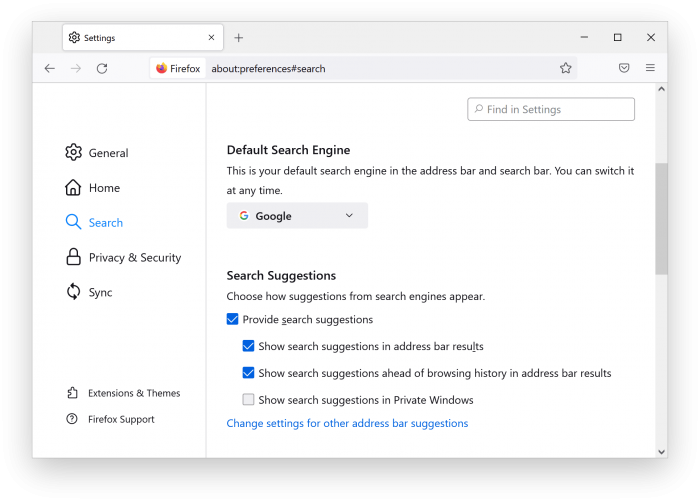
Firefox claims to stop companies like Google from tracking you with its Enhanced Tracking Protection (ETP).
So why is Goole set as the default browser?
ETP is also set to “standard” as default. Does this mean it is safe to use Google in Firefox? Maybe, but I assume that Google can track users either way because of how fingerprinting works.
It is not so much about protecting the users from tracking. It is also about providing users with alternative solutions that actually avoid tracking overall. After all, I believe most users use Google because they don’t know any better alternatives, like for example DuckDuckGo.
To be fair Brave Browser is also set up with Google as its default search provider, but at least they announced their own search engine in March 2021. Brave also asks you which provider you want to use on first launch. Firefox does not.
Setting Google as the default search engine is a cheap way to gain market share for Firefox.
At the time of speaking, Google Search has a market share of 91,4%. Setting Google search as the default search engine will further contribute to Google’s (Alphabet Inc.) megalomanic ambition for internet domination.
Is this how Mozilla wants to contribute to internet privacy? Or is it just how they want to attract new users?
Firefox is promoting privacy-invasive sites
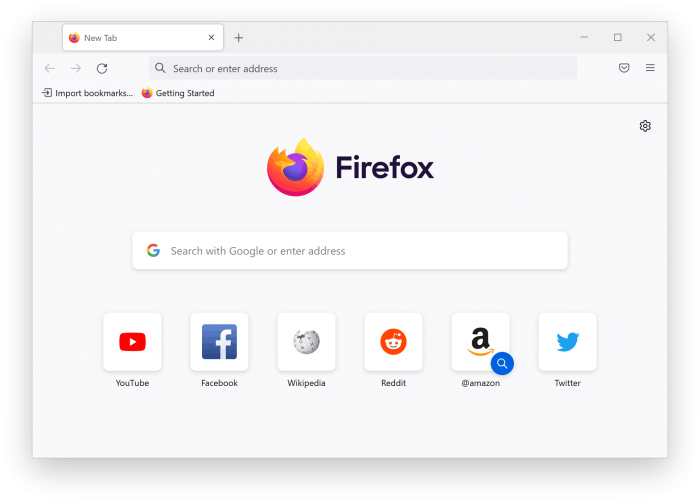
The default installation of Firefox includes links to the most privacy-invasive websites in the world, including Google, Facebook, and Twitter as the default search bar.
Why promote privacy-invasive applications if privacy is an essential part of Firefox?
On one hand, Mozilla is taking a firm stance when it comes to privacy, but on the other, they totally leverage the success of social media sites. I call that corporate cowardice.
Horrible spell checker for non-English speakers
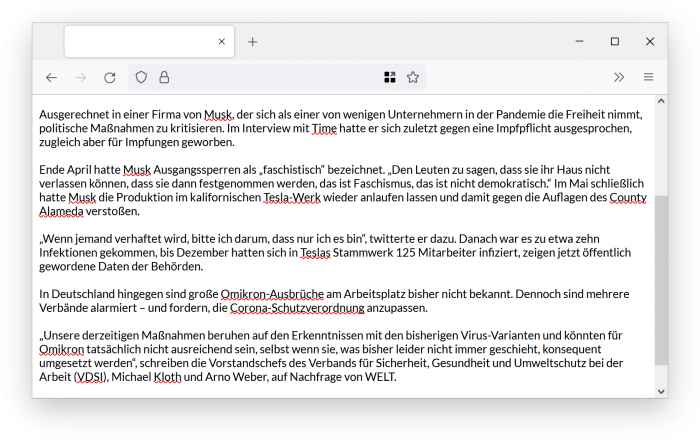
Firefox does not have a built-in spell checker for non-English languages. You will have to download a user-created Dictionary for that. These are not maintained by Mozilla but by volunteers.
For non-English speakers, the provided dictionaries are not great. They often lack very common words and they are very outdated. Especially loanwords or newer words are often not recognized.
For example, German words like “Discotheken” or “Corona” are not recognized. These are new words in an old language, but they have still been used for many years now. Hyphenated words are also very often a miss.
Both Chromium and Firefox use the Hunspell as a basis for their spell checkers, so it is strange that Chromium is far better when it comes to spelling than Firefox. It might perhaps depend on how well-maintained the plugin is. After all, it needs to be updated every once in a while. Either way, this is a drawback for the billions of non-English speakers.
Horrible download management
The download management in Firefox 95 is outdated, inconvenient, and unintuitive. Here is why.
When you attempt to download a file with Firefox, first a popup appears. Then you have to wait for a deliberate delay before you can confirm that you want to download the file. You can disable this feature, but it really should not be there in the first place.
I assume this is a security precaution as many users download files without thinking twice. However, unskilled users will probably just click on whatever appears anyway. Also, it is not like downloading a file will infect your computer right away, though in some rare cases it can. Infection requires execution, but Windows 10 and 11 do have built-in antivirus tools.

Another problem is that it is not clear how that download is progressing. Compared to Chrome/Chromium-browsers where users can see the download progress at the bottom of the window Firefix is just… terrible… 🤦♂️

Yes, there is a tiny wheel icon in the download button icon, but it is barely visible and it is also not easy to keep track of multiple downloads.
To view the progress of multiple downloads one has to open a separate window with CTRL+J or click on the download icon.
Another problem is downloading multiple files. It is a freaking nightmare because you have to confirm each and every download. What on earth was Mozilla thinking here?

Note that this pop-up can be disabled by typing about:config in the address bar and setting browser.download.improvements_to_download_panel to True. However, users should not have to hack about-config to be able to have an intuitive user interface.
Computers usually have an associated default app anyway. All one should have to do to open a file should be to open it. Why would anyone need to tell the browser how to open it? It’s a computer. Open it in whatever program is associated with the file type!
Download management inconsistency
Firefox does allow you to set default actions for default file types, but this is limited to a few file types only. Why…?
Some file types cannot be set to be automatically downloaded. Even if you manually edit the handlers.json file in the profile folder. Why…? There is no logic here.
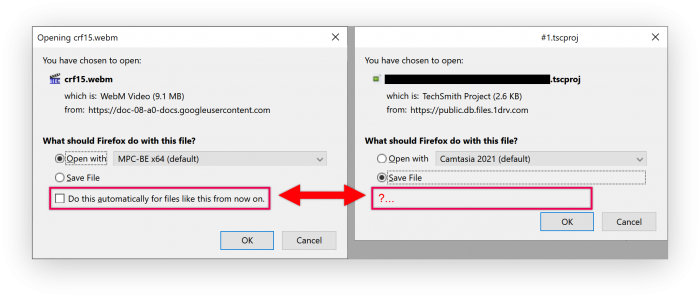
If Firefox wants to compete with the convenience of other browsers it will have to do a lot better than this.
Inconvenient profile switching
In chromium browsers like Brave, you have a very convenient way of switching profiles. You simply click on the profile icon and select your profile.
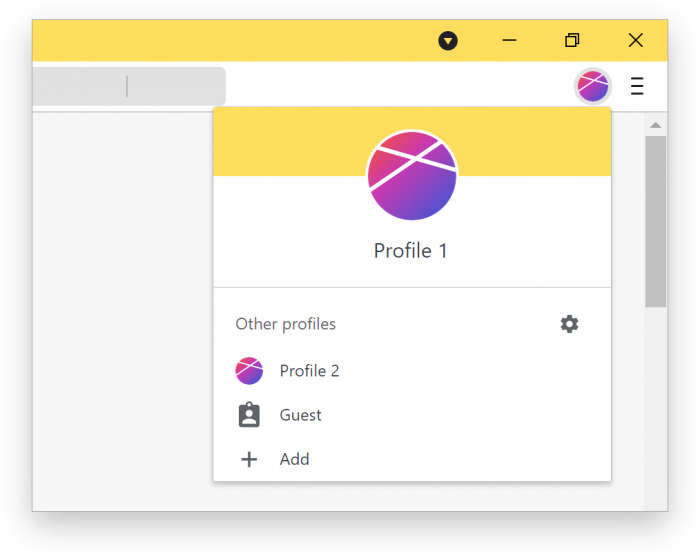
In Firefox however you will have to enter about:profiles in the address bar and then click on the profile you want in the cluttery list of profiles.
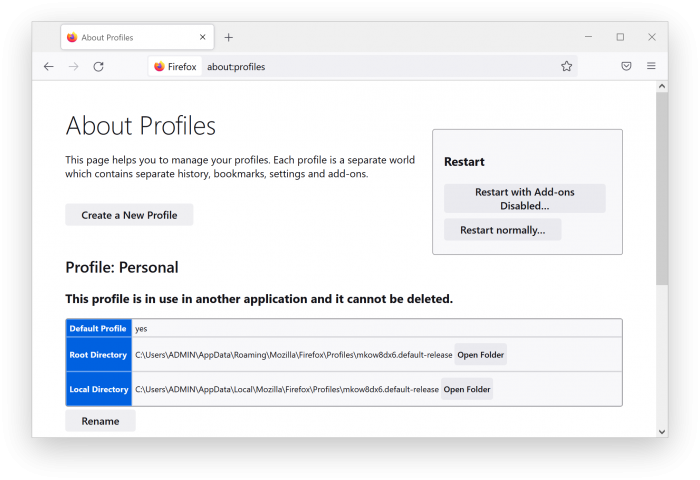
It is not a big deal, but it shows that Chromium browsers make it just a little bit more convenient to do simple tasks like this. These small advantages are what together make Firefox less desirable.
Synchronization limitations
Unlike Google Chrome, synchronization in Firefox does not actually back up your data. It simply transfers data from one device to another. Let me put it another way: If you lose all devices that sync your Firefox profile, you will permanently lose all data.
As Firefox states in its documentation:
Important: Sync is not a data backup service. Users should continue to perform regular backups of their Firefox profiles to prevent loss of data.
Firefox support – How do I set up Sync on my computer?
The strange thing here is that Mozilla do keep your data on their servers. As they have written in their privacy notice:
If you enable Sync, Mozilla receives the information that you sync across devices in encrypted form. This may include Firefox tabs, add-ons, passwords, payment autofill information, bookmarks, history, and preferences.
Firefox Privacy Notice as per 17 November 2021
If Mozilla actually keeps the data on their servers we should be able to use that data even if all devices are lost! At least this is possible with Google Chrome.
Privacy-wise it does not make any sense and it surely does not make Firefox sync very attractive compared to syncing in other browsers.
In addition to not backing up the data, Firefox sync does not sync the following:
- How Firefox handles downloads.
- The default search provider. The default is always Google.
- Search Suggestions settings.
- Search Shortcuts.
- Cookies and Site Data (at least not completely).
- Interface customization.
- Dictionaries, settings and custom dictionaries (persdict.dat).
Every time you set up a new device you will have to change these settings manually.
It is not a big deal, but the point of this article is to point out all the little things that are annoying enough to consider switching web browsers from Firefox to something different.
Making backups is necessary but complicated

As I said earlier, syncing a Firefox account does not constitute a backup. This makes backing up Firefox manually a necessary task. But backing up is a little complicated for most users. In short, you will have to enter the AppData folder, copy certain files and restore them to another profile location on the other computer.
You cannot copy data made with a newer version of Firefox and restore it to an older version of Firefox. Although this is a weird thing to do there might be situations that demand it. You will then be forced to exit or create a completely new profile.
On the positive side, Firefox does allow copying cache and passwords to a new computer, something Chromium browsers don’t handle with a copy-paste backup operation. However, Google Chrome features complete backup anyway.
Why can’t Mozilla just make a button that backs up the required file types in the profile folder? Or even better, make a scheduled task that does this for the user every once in a while. I would love to see an automatic backup schedule copying my profile to my cloud syncing folder of choice.
Why I am pessimistic about the future of Firefox
The web browser market is tight. If Firefox is going to gain market share it cannot solely rely on a privacy-based philosophy when it is nowhere close to a privacy-aware browser. When it comes to web browsers, the most important thing is speed. Next are convenience and usability.
Nobody is going to use a web browser based on sympathy.
The problems with Firefox mentioned in this article are a bunch of small things, I know. It is not like it is the end of the world, but it is those small things that you have to fight for to win a better market share.
Of course, it is easy to forget all the things Firefox does right. After all, there are a lot of things that happen under the hood like security, speed and performance improvement, stability, cross-platform consistency, maintenance, and so on.
Today Firefox has a market share of about 7.5%. Firefox has demonstrated that it is possible to compete. But in order to really compete with Google Chrome or Microsoft Edge, or any other Blink browser for that matter, Mozilla must not underestimate the power of making interface features more convenient for the end-user. These things can be as simple as changing how things look or feel rather than how things are intended.
Years have passed and Firefox still holds on to fairly outdated download management, inconvenient profile switching, complicated backup methods, and less-than-average spell checkers.
Bundling up the software with links to major social media sites and Google products is a conflict of interest when it comes to their stance on internet privacy.
If all I cared about was flexibility and convenience I would probably just use Google Chrome, Edge, or perhaps the very improved Vivaldi browser. However, I do care about privacy, and if Firefox is the lesser evil of these browsers I will still use it. Most people will not.